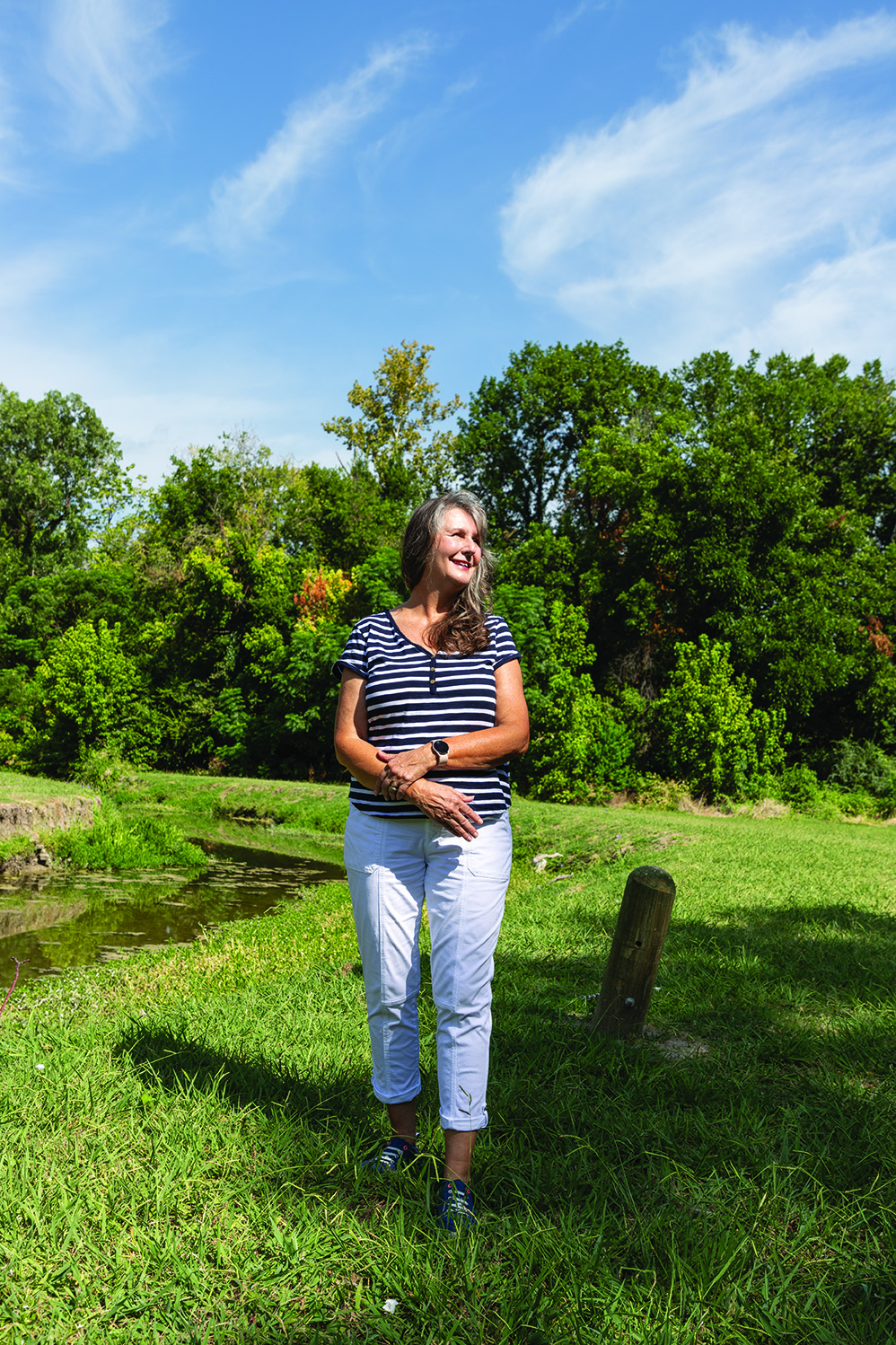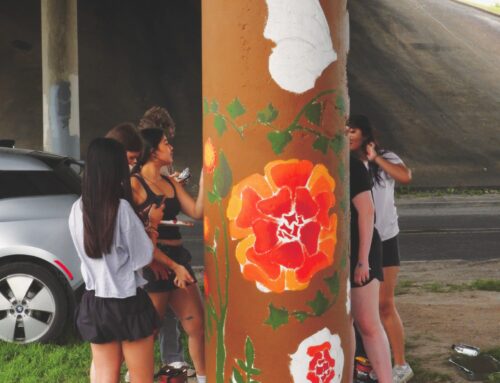
Photo by Victoria Gomez.
“Where can I get more possums?”
This was the unlikely question posed to Prudi Koeninger, founder of the DFW Wildlife Hotline, now in its 20th year. It was as gratifying as it was unexpected, unequivocal evidence that the hotline was doing its job: educating the public about wildlife and how to coexist with the critters living among us.
Read on for a happy ending to the opossum question. But first, a bit of background on the hotline.
With our neighborhood’s fortunate proximity to lovely White Rock Lake, chances are good that you or someone you know has called DFW Wildlife Hotline about an injured bird, a rowdy raccoon or an orphaned squirrel. You have Koeninger to thank for the help this valuable service provides.
Before establishing the hotline, she had been a wildlife rehabber specializing in raccoons for several years, work she stumbled into after her police officer husband brought home baby raccoons he removed during a call. At the time, no system existed to deal with mammals in need. More often than not, animal services were called and often ended up euthanizing wildlife.
“Conflicts with wildlife were increasing due to urban sprawl, and we had a population that had no experience with wildlife,” Koeninger explains.
She saw a need and took action, first finding a service to provide the phone system for a hotline. Then she identified a volunteer base by partnering with North Texas Master Naturalists. She gained the support of rehabilitators in the DFW area, collected resources and trained volunteers to provide solutions to callers.
In its first year, 2003, the hotline answered 300 calls. It now averages 12,000-15,000 each year, and it’s still covered by volunteers. Most calls are from this area, but they have received distressed queries from other parts of Texas and even other states.
“The volunteers get excited when they help someone outside of Texas,” Koeninger says. “It gives them joy to know how far their volunteer time can reach and have influence.”
When a volunteer picks up the phone, they never know what to expect. “My cat brought me a baby rabbit, squirrel, bird, etc. I found an animal. What do I do to help it? I have a coyote in my neighborhood. I have an animal in my attic. I have an injured animal. Where can I take it? Will you come trap and remove this animal?” Koeninger lists these as common concerns. “Fifty-five percent of our calls are bird related, with 30% being rabbit, squirrel and opossum.”
One of the goals of the hotline is to educate the caller and create a tolerance and understanding of how to share our spaces. The caller asking for more opossums? Koeninger says this was one of her most memorable and heartwarming calls. She remembers the woman was “hysterical” about finding an opossum in her backyard and demanding that they come immediately and kill it.
“I started explaining that the opossum was not a public health threat. They do not get rabies. They will not attack you. You would have to put your hand next to their mouth to be bitten. Yes, they will show you those pearly whites. However, if you did not retreat, their body would release an enzyme that makes them go into a coma state, which is where you get ‘playing possum.’ They are not going to chase you,” she patiently informed the woman.
“Then I started telling her that they are immune to venomous snakes and will seek, kill and eat snakes. They eat rats and mice, roaches, grasshoppers, etc. Before the call was over, she was asking me where she could get more opossums,” Koeninger says. “Would I bring her another one?”
Another memorable call involved not a fledgling bird or baby bunny but a juvenile alligator. The caller had purchased the alligator in the pet trade but now wanted to get rid of it. The volunteer put in some research time, and the gator is now living out his reptilian days at Brazos Bend State Park with others of his kind.
East Dallas, as you would expect, makes good use of the hotline, which receives calls from our neighborhood every day. If you’ve called the hotline, you might have spoken with volunteer Julie Cassidy, who lives near the lake and specializes in opossum and squirrel rehab. She estimates she’s taken in well over 1,500 animals in the dozen or so years she’s been involved in rehabbing and answering hotline calls.
Cassidy says most of the calls she’s handled involve birds and rabbits, situations that are often resolved with a bit of education instead of rescue.
But she’s dealt with her fair share of oddball calls, including one from a man who claimed to have a lemur on his back fence. During the call, the man’s wife saw a post on social media that a neighbor’s lemur was missing. Mystery solved, though animal control became involved to verify just how this person came to be in possession of a lemur.
Cassidy loves helping folks with animal concerns and admires those who care enough to call.
“I totally enjoy answering the flurry of calls we receive and guiding people on what to do. The majority are compassionate, caring people that want to do the right thing for wildlife,” Cassidy says. She adds that she encourages animal lovers to consider volunteering for the hotline.





